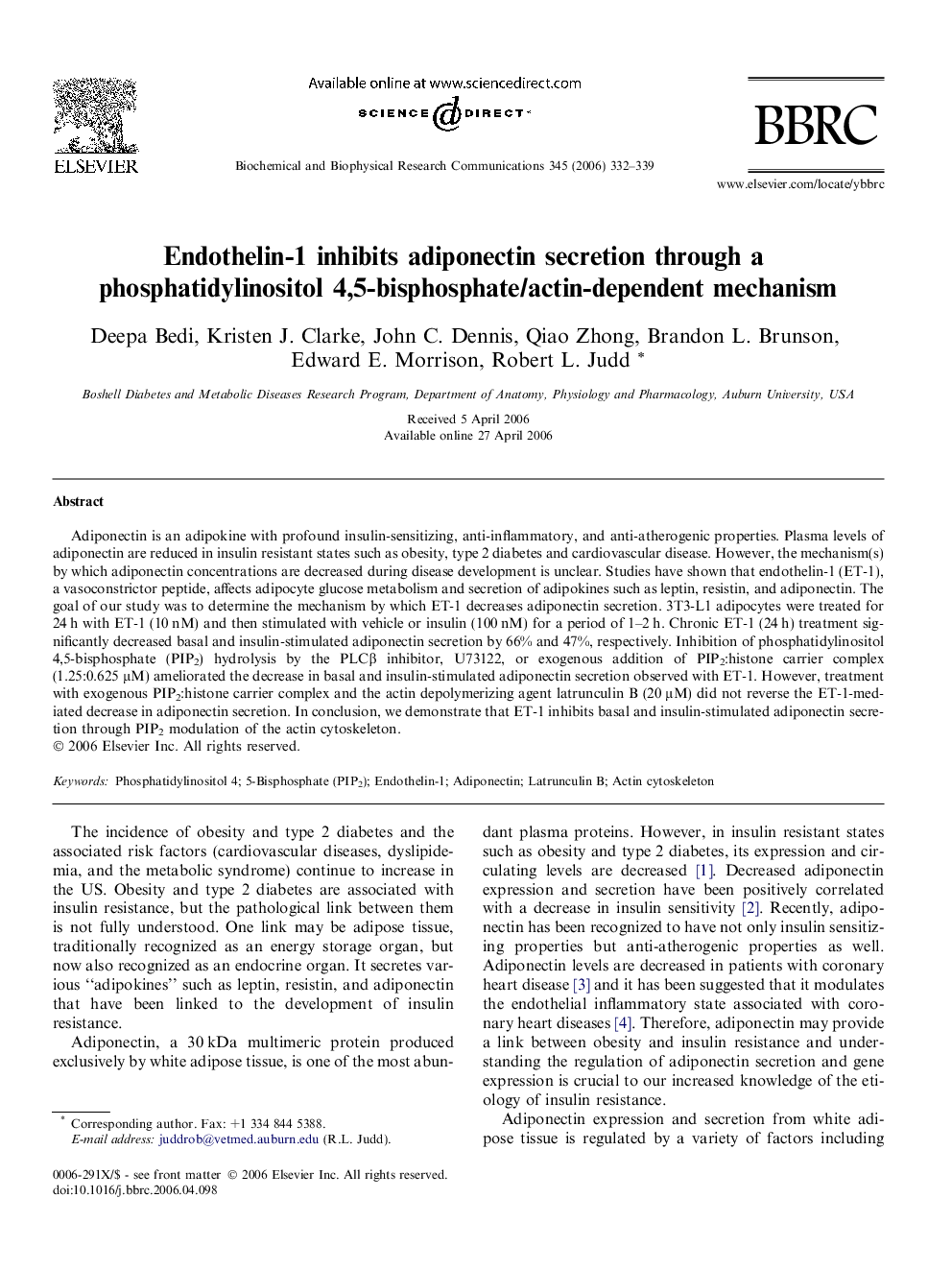| Article ID | Journal | Published Year | Pages | File Type |
|---|---|---|---|---|
| 1939365 | Biochemical and Biophysical Research Communications | 2006 | 8 Pages |
Abstract
Adiponectin is an adipokine with profound insulin-sensitizing, anti-inflammatory, and anti-atherogenic properties. Plasma levels of adiponectin are reduced in insulin resistant states such as obesity, type 2 diabetes and cardiovascular disease. However, the mechanism(s) by which adiponectin concentrations are decreased during disease development is unclear. Studies have shown that endothelin-1 (ET-1), a vasoconstrictor peptide, affects adipocyte glucose metabolism and secretion of adipokines such as leptin, resistin, and adiponectin. The goal of our study was to determine the mechanism by which ET-1 decreases adiponectin secretion. 3T3-L1 adipocytes were treated for 24 h with ET-1 (10 nM) and then stimulated with vehicle or insulin (100 nM) for a period of 1-2 h. Chronic ET-1 (24 h) treatment significantly decreased basal and insulin-stimulated adiponectin secretion by 66% and 47%, respectively. Inhibition of phosphatidylinositol 4,5-bisphosphate (PIP2) hydrolysis by the PLCβ inhibitor, U73122, or exogenous addition of PIP2:histone carrier complex (1.25:0.625 μM) ameliorated the decrease in basal and insulin-stimulated adiponectin secretion observed with ET-1. However, treatment with exogenous PIP2:histone carrier complex and the actin depolymerizing agent latrunculin B (20 μM) did not reverse the ET-1-mediated decrease in adiponectin secretion. In conclusion, we demonstrate that ET-1 inhibits basal and insulin-stimulated adiponectin secretion through PIP2 modulation of the actin cytoskeleton.
Related Topics
Life Sciences
Biochemistry, Genetics and Molecular Biology
Biochemistry
Authors
Deepa Bedi, Kristen J. Clarke, John C. Dennis, Qiao Zhong, Brandon L. Brunson, Edward E. Morrison, Robert L. Judd,
